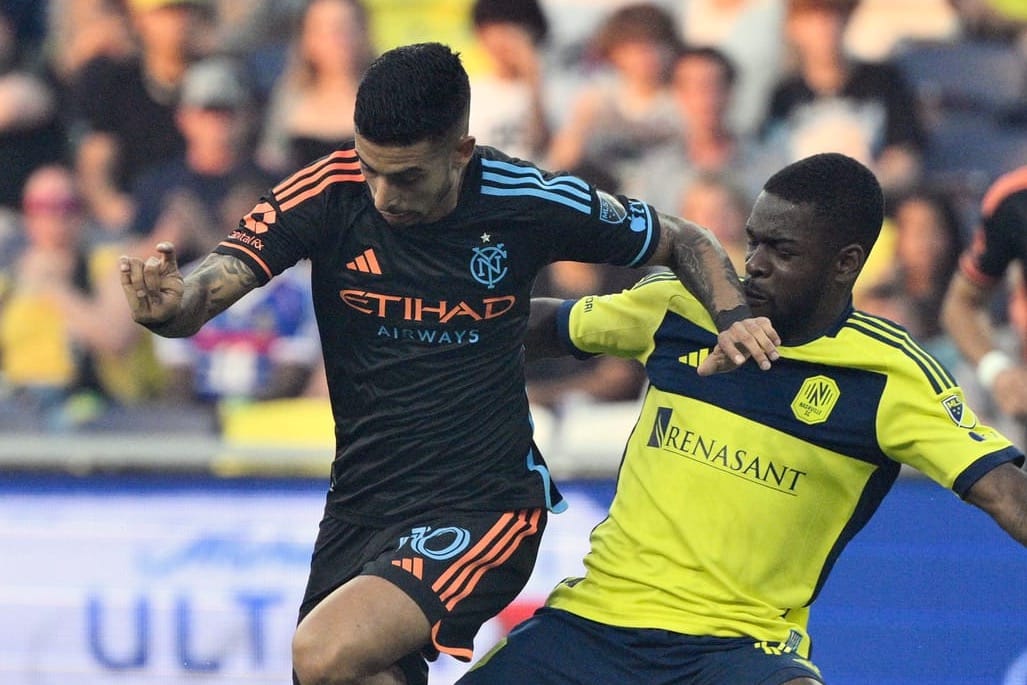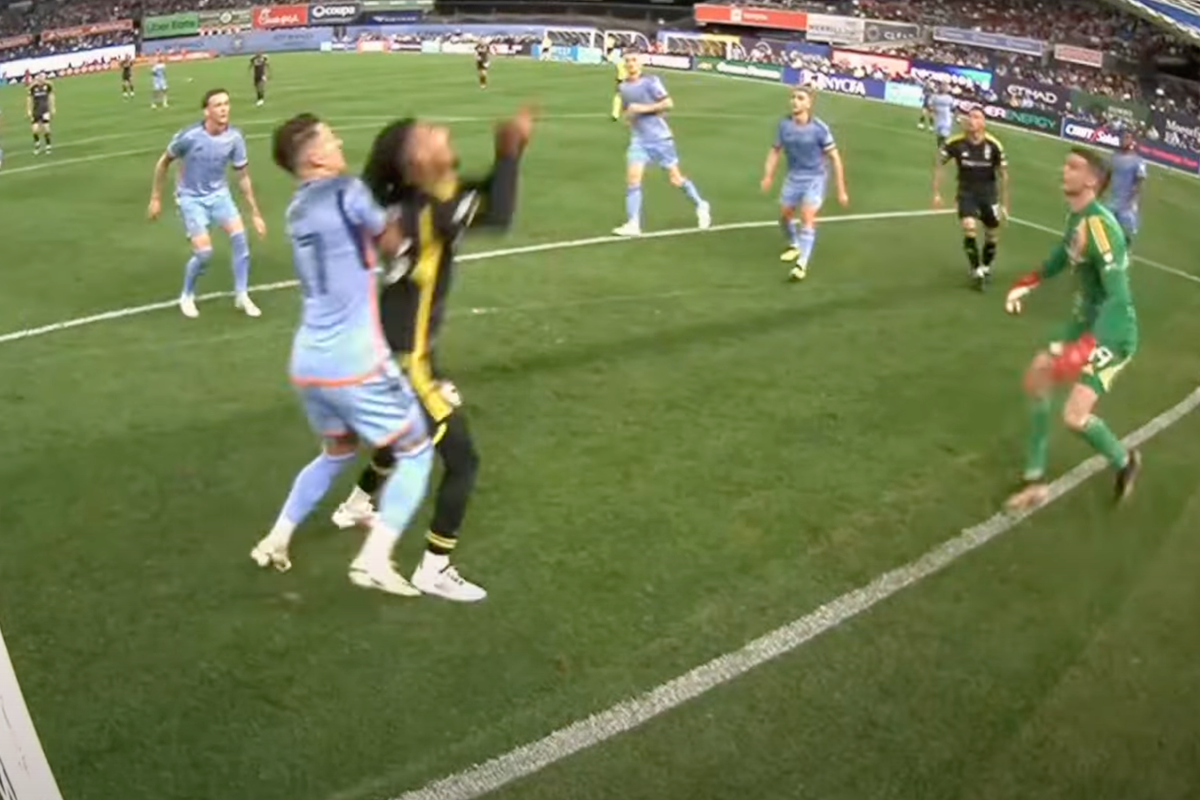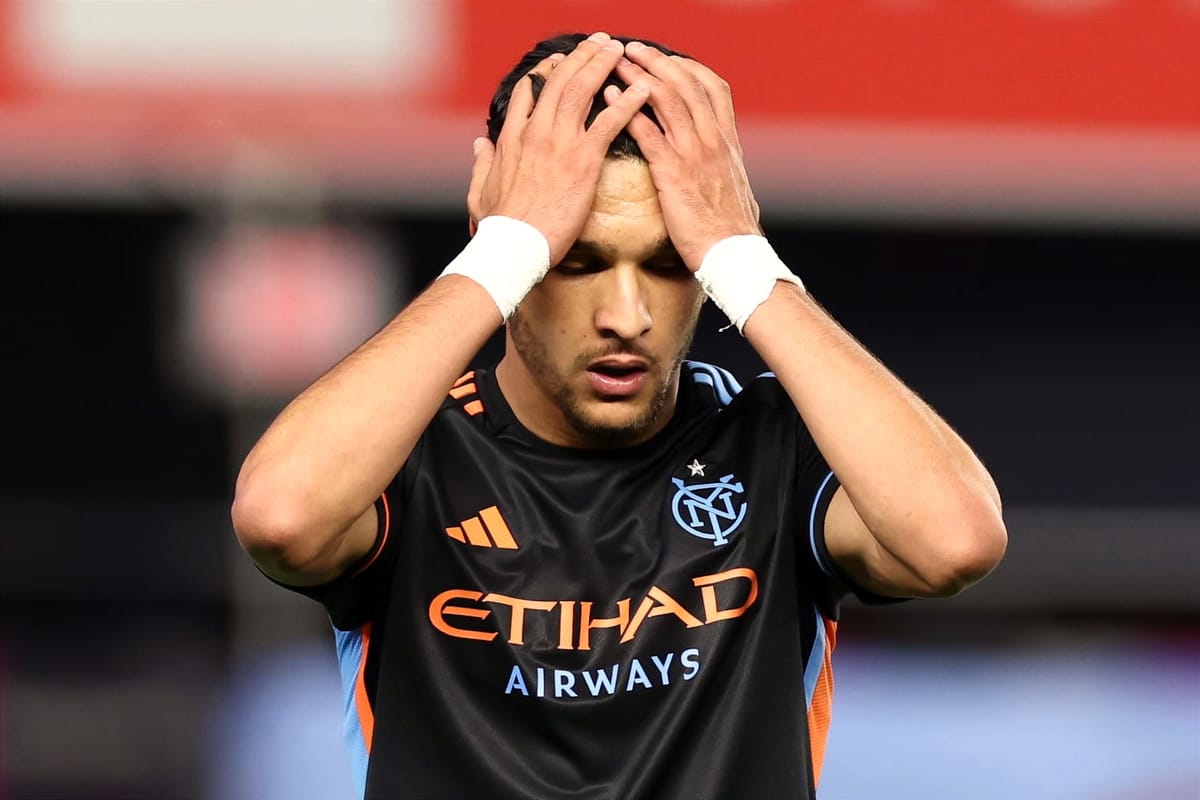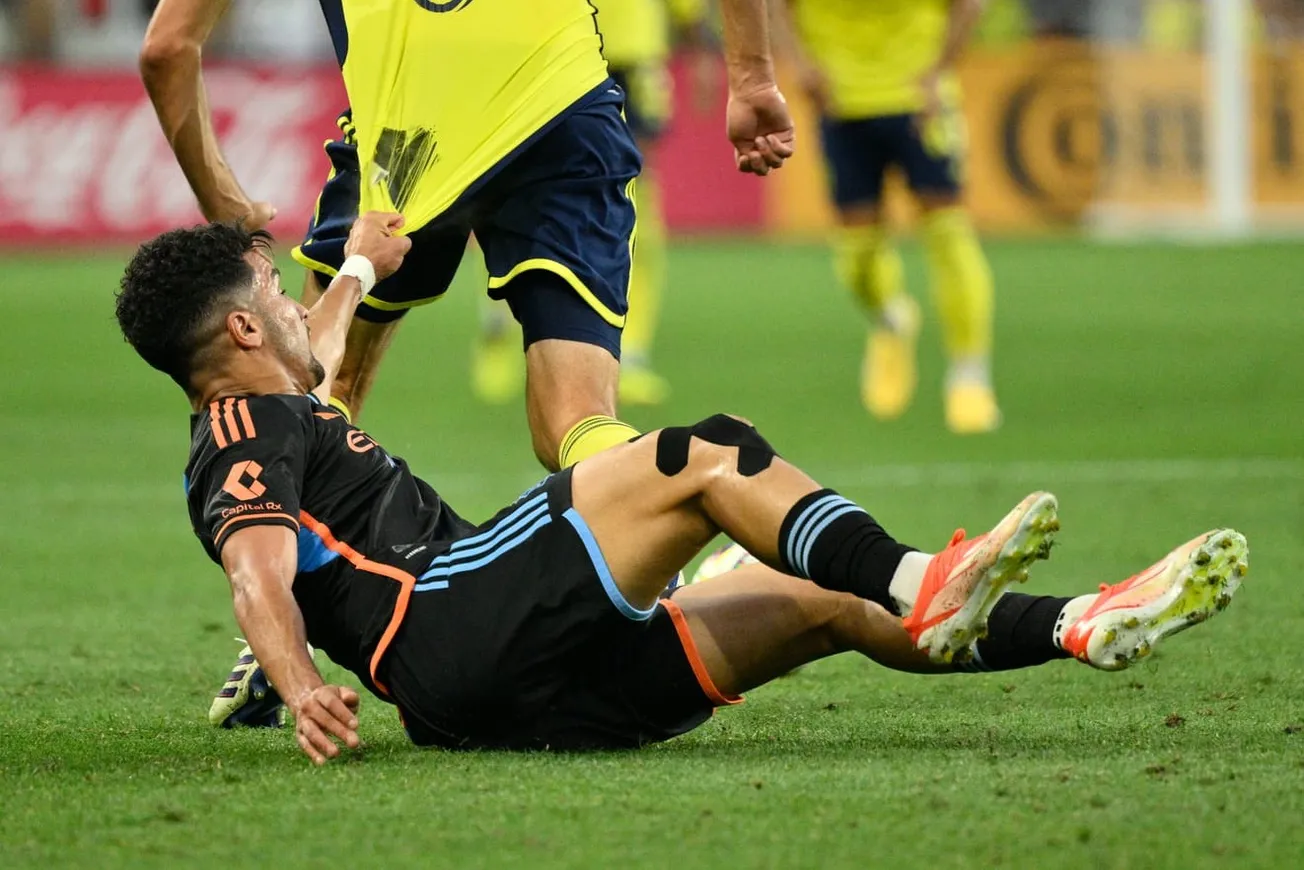Stop us if you heard this one before: Mounsef Bakrar didn't score tonight.
According to the stat sheet, the New York City FC striker only took one shot. It was blocked.
Much has been said about Mounsef's lack of scoring — after all, the striker has just one goal in 13 starts and 15 appearances. But just as concerning are Bakrar's attempts on goal, as he managed to take just 12 shots on target in those 15 appearances.
By comparison, Taty Castellanos took 33 shots on target in the 17 games he played with New York City in 2022 before he left for Girona FC — and scored 13 goals. He took 57 shots on target the year before, when he scored 19 goals and won the Golden Boot. It might be unfair to stack up a striker such as Bakrar, who joined the league just last summer, against Castellanos, who spent two years growing into the position. But Bakrar isn't helping himself when he starts in a winnable game against Nashville SC and doesn't test the goalkeeper once.
If his futility last night can be summed up in one moment, it was in the 23rd minute, when Bakrar gave away the ball to Nashville center-back Jack Maher and tried to chase him down. But Bakrar couldn't catch up. So he grabbed Maher's shirt, ripped it, fell down, then stayed down nursing his hand after his fingers were tangled up in the hole he created.
Maher kept his composure despite the ripped shirt – referee Victor Rivas played the advantage – and moved the ball to Sam Surridge, who started a sequence of passes that ended with Nashville scoring the one and only goal of the game 34 seconds later.
Maybe it's time to press pause on the Mounsef Experiment. His lack of productivity has created a striker-sized hole in the scoreline for New York City, who remain stalled at 26 goals after 19 games. That places the team in the lower half of the overall table, and closer to last-place New England Revolution (17 goals) than sixth-place Portland Timbers (36), never mind league leaders Inter Miami (46) and Real Salt Lake (40).
Back in April, we published a post titled "Finishing School: When will Mounsef Bakrar score?" In it, we discussed the Mounsef Paradox, which puzzled out how a striker who didn't score could still contribute so much to the team. Bakrar's numbers are elite among strikers in almost all categories — except for goals scored.

Head coach Nick Cushing consistently expresses support for Bakrar, and continues to put him in the Starting XI. Cushing says he wants Bakrar to find his form, and that comes from playing in competitive matches.
That faith is admirable. But opposing teams have decoded Bakrar, and know how to mark him out of the game: A central defender keeps him close, looks for a ball over the top or played with Bakrar's back to goal, then uses his size to force him wide. Bakrar is quick but he's not fast enough to round the defender or powerful enough to push through him, and the striker either is dispossessed or fails to control the ball. We saw it tonight, and we saw it on Wednesday, when Bakrar started against LA Galaxy, played for 66 minutes, and didn't place a shot on target. He might get the ball, but defenders make sure he can't do anything with it.
Bakrar remains a promising player. His runs are intelligent, and his workrate is excellent. He tracks back, he's selfless, and he looks to make the smart pass. Remember, he's only 23. There's a lot to like.

But this isn't working. Bakrar needs a moment to sit with the coaches and and figure out how he's going to beat MLS defenders. If this was a movie, that process would condensed to a montage with scenes of him lifting weights, drinking protein smoothies, watching game tape, doing yoga, running until he throws up, studying tactic boards, and taking practice shots with such intensity that his shoes split apart. The sequence starts with Bakrar showing up late to training because he slept through his alarm after an anxious night's sleep, and finishes with him turning on the lights at the Etihad City Football Academy because he's now always the first one there.
A well-edited montage like that shouldn't run more than 60 seconds, maybe even less.
In the real world, it'll take a little longer.











